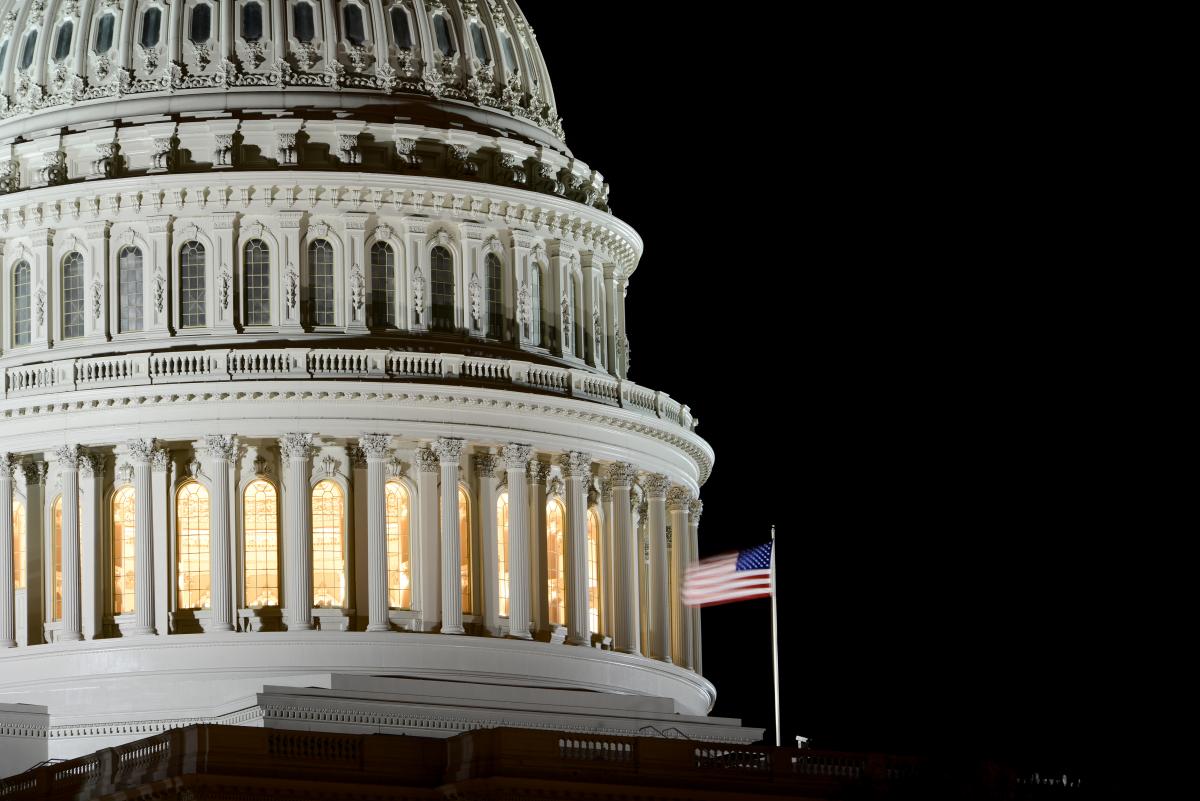
 Following a marathon session that literally went all night, on March 6 the Senate passed an amended version of the $1.9 trillion COVID relief bill that removed the COLA freeze to plan limits, while retaining other pension provisions.
Following a marathon session that literally went all night, on March 6 the Senate passed an amended version of the $1.9 trillion COVID relief bill that removed the COLA freeze to plan limits, while retaining other pension provisions.
Moving one step closer to enactment, the American Rescue Plan Act of 2021 (H.R. 1319) will now be sent back to the House of Representatives. The measure is set to be taken up by the House on Tuesday and will likely be approved, clearing it for President Biden’s signature.
The Senate approved the amended version of H.R. 1319 along party-lines in a 50-49 vote (Republican Sen. Dan Sullivan (AK) did not cast a vote because he was away attending the funeral of a family member).
As we reported last week, a substitute amendment offered by Senate Majority Leader Chuck Schumer (D-NY) and later approved by the Senate removed a provision that would have frozen the annual cost-of-living adjustments (COLAs) for overall contributions to defined contribution plans and for the maximum annual benefit under a defined benefit plan beginning after 2030. That provision, which also applied to the limit on the annual compensation of an employee that may be taken into account under a qualified plan, had been included in the version approved by the House on Feb. 27, but was removed after an intensive lobbying effort by the American Retirement Association.
Multiemployer Plan Funding Relief: To address the multiemployer plan funding crisis, the legislation retains the Butch Lewis Emergency Pension Plan Relief Act which, among other things, would create a “special financial assistance” program under which cash payments—or grants—would be made by the PBGC to financially troubled multiemployer plans.
Single Employer Plan Funding Relief: In addition, the legislation provides single-employer plan funding relief by extending the amortization period for funding shortfalls and the pension funding stabilization percentages, along with modifying the special rules for minimum funding standards for community newspaper plans.
Section 162(m) Limit: The Senate version of H.R. 1319 also includes a provision that seeks to broaden the $1 million deductibility cap under Section 162(m) by expanding the definition of “covered employee” to apply to the eight highest paid employees, plus the CEO and CFO. This change would be effective for tax years beginning after Dec. 31, 2026.
Employee Retention Credit: The Senate version expands on the House bill to allow certain businesses to count wages paid to all employees as qualifying wages for purposes of the employee retention tax credit. It also would make the credit available to certain start-up businesses, among other changes that build on the CARES Act and the Consolidated Appropriations Act, 2021. The House version extended the credit through Dec. 31, 2021, and modified the credit such that, beginning after June 30, 2021, it would be structured as a refundable payroll tax credit against the hospital insurance tax.
In general, the bill also includes a package of various other tax changes, including an expansion of the child and earned income tax credits, another round of so-called recovery rebates, extension of unemployment benefits and funding for vaccine programs and state and local governments. An attempt to add a minimum wage increase back to the bill after it was ruled out of order by the Senate’s parliamentarian under the arcane budget rules was defeated.
The legislative text of H.R. 1319 as approved by the Senate is not yet available, but a Joint Tax Committee revenue table provides an outline of the bill’s tax title.
- Log in to post comments
